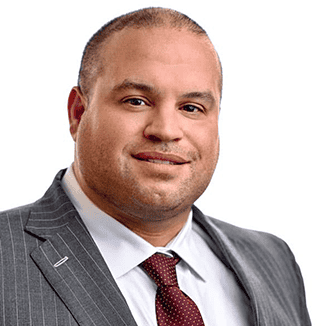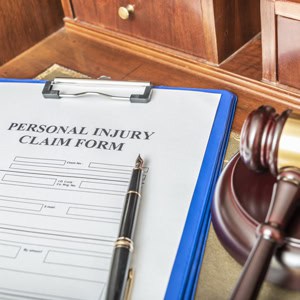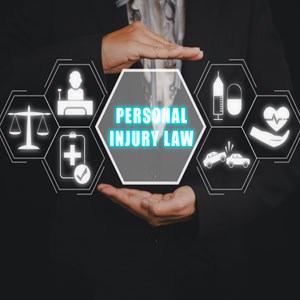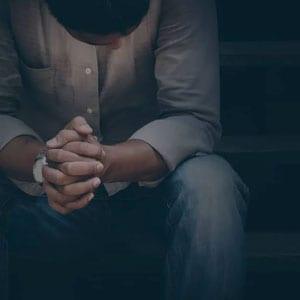When tragedy strikes in the form of a wrongful death, families are often left to navigate an unimaginable journey—one filled with grief, unanswered questions, and the difficult task of seeking justice. At The Bishop Law Group, we recognize that no legal action can truly make up for the loss of a loved one. What we can offer is a trusted partnership, grounded in compassion, professionalism, and an unwavering commitment to helping you find closure and accountability.
Our experienced Baltimore wrongful death lawyers are here to stand by your side, listen to your story, and guide you through the legal process with sensitivity and respect. We understand that every family’s situation is unique, and we approach each case with the care it deserves—ensuring that your rights are protected and that your loved one’s legacy is honored with dignity. From the first consultation to the final resolution, you’ll have a dedicated legal team that advocates for you relentlessly, every step of the way.
If you or someone you care about has been the victim of a wrongful death, don’t delay seeking legal guidance. Call The Bishop Law Group today to schedule your free consultation with a Baltimore personal injury lawyer. We proudly serve clients throughout Maryland, including Baltimore, Ocean City, and surrounding communities.
Understanding Wrongful Death Compensation in Maryland
Losing someone you love is heartbreaking. If their death was caused by someone else’s careless or harmful behavior, you may be able to file a wrongful death claim. This kind of legal action can help you get financial support to cover costs and recognize the emotional impact the loss has had on your family.
In Maryland, specific laws explain who can file a claim, what damages they can recover, and how the process works.
For a free legal consultation with a personal injury lawyer serving Baltimore, call (410) 390-3101
What Is a Wrongful Death Claim?
A wrongful death claim is a type of lawsuit you can file when someone dies because of another person’s negligence or intentional act. That might include things like car accidents, medical mistakes, dangerous products, or even violence. The goal is to hold the person responsible for the death accountable—and to help the surviving family recover losses caused by that death.
Baltimore Personal Injury Lawyer Near Me (410) 390-3101
Types of Compensation You May Receive
Even though no amount of money can replace your loved one, compensation may help with the challenges you now face. According to Maryland law (MD Code § 3-904), you may be able to recover two types of damages:
Economic Damages in a Wrongful Death Claim
Economic damages refer to measurable financial losses that result from the death of a loved one. These costs can quickly add up and often place a significant burden on surviving family members. In Maryland wrongful death cases, common economic losses include:
Medical Expenses Prior to Death
These are costs for medical treatment the deceased received before passing away. They may include:
- Emergency room visits and ambulance transport
- Surgical procedures or hospital stays
- Life-sustaining measures such as intensive care or respiratory support
- Diagnostic tests, medications, and follow-up care
Such expenses often arise when the deceased was injured but survived for a period before passing.
Funeral and Burial Costs
End-of-life arrangements can be expensive, and surviving families are often responsible for paying:
- Funeral home services
- Casket or cremation fees
- Burial plot or urn expenses
- Transportation and ceremonial costs
Lost Future Income
This includes the wages or salary the deceased would have earned if they had lived. Factors considered may include:
- Age and health at the time of death
- Expected working years remaining
- Job role, training, and career progression
- Bonuses, pension contributions, and retirement benefits
Loss of Financial Support
Beyond wages, the deceased may have provided direct financial assistance to dependents. This support could include:
- Contributions to mortgage or rent payments
- Childcare or education expenses
- Insurance coverage or savings contributions
- Food, utilities, and transportation costs
Loss of Household Services
Many individuals contribute to their household in non-monetary ways that still have financial value. If the deceased regularly provided:
- Childcare or elder care
- Meal preparation and housekeeping
- Home maintenance or repairs
- Transportation or scheduling assistance
Non-Economic Losses
Non-economic damages reflect the emotional and psychological impact of losing a loved one. These losses are harder to measure in dollars, but they carry deep significance in helping families seek justice and healing. In Maryland, surviving family members may be entitled to compensation for the following:
Mental Anguish and Emotional Suffering
This includes the severe emotional pain that follows the death of a loved one, which can affect every aspect of daily life. Grief often manifests in:
- Deep sadness, anxiety, and depression
- Difficulty sleeping or eating
- Disruption of relationships, work, and routines
- Feelings of despair, helplessness, or trauma
For parents who have lost a child, children who have lost a caregiver, or spouses grieving the loss of a life partner, the emotional toll can be long-lasting and debilitating. While these effects may not show up on a medical bill, they are real and can be compensable.
Loss of Companionship or Consortium
This refers to the emotional and relational losses that result from the deceased’s absence. It may include:
- The end of a romantic partnership or marriage
- Loss of affection, intimacy, and shared experiences
- Inability to confide in or depend on the loved one
- Absence of the relationship’s emotional support
Spouses, in particular, may be able to recover damages for the loss of marital companionship and the unique emotional bond that no longer exists.
Loss of Advice, Care, and Guidance
When someone dies, their role as an advisor, mentor, and supporter to family members is lost. Compensation may address:
- The absence of parental advice and emotional support for children
- Loss of moral guidance, discipline, and personal encouragement
- Inability to access the wisdom or reassurance once provided by the deceased
Reduced Emotional Stability in the Home Environment
This category is especially important when young children or dependent adults are involved. The emotional guidance and nurturing provided by the deceased may be irreplaceable—and its loss can have lasting consequences.
Maryland places no limit on how much economic compensation you can get. However, for non-economic damages, there is a maximum cap that adjusts every year.
As of October 1, 2024, the cap for non-economic damages in Maryland is:
- $950,000 for a single beneficiary
- $1,425,000 for two or more beneficiaries (150% of the single-beneficiary cap)
- $2,375,000 if combined survival action + wrongful death (caps added together)
In extreme cases, where the person responsible behaved in a very reckless or harmful way, the court might award punitive damages to punish that conduct and help prevent it from happening again.
Click to contact our Baltimore Personal Injury Lawyers today
How Are Settlements Divided?
Maryland uses a unique approach to divide wrongful death settlements. Instead of assigning fixed percentages, the law looks at how dependent each person was on the deceased—emotionally and financially.
Your Baltimore wrongful death attorney can help assess your relationship with the deceased and explain how a settlement might be divided based on Maryland’s guidelines.
Complete a Free Case Evaluation form now
What Do You Have to Prove?
To win a wrongful death case, certain facts must be shown:
Requirements for a Negligence-Based Case:
- The other party owed a duty of care to the deceased
- They failed to meet that duty
- That failure led to the death
- The surviving family suffered measurable harm
Requirements for Intentional Acts:
- The act (like assault or battery) was done on purpose
- The deceased died as a result
- Surviving family suffered losses
If someone dies due to an intentional act, a criminal trial may happen separately from your civil case. You can file a civil wrongful death claim even if there is a criminal case underway.
Who Can File a Lawsuit in Maryland?
Maryland law (MD Code § 3-904(a)(1)) explains who may bring a wrongful death claim. You qualify to file if you are:
- The deceased’s spouse, parent, or child
If none of those relationships exist, other people may be eligible, including:
- Relatives by blood or marriage
- Anyone who was substantially dependent on the deceased
If you’re unsure whether you qualify, a wrongful death lawyer in Baltimore can help determine your eligibility.
Time Limits for Filing a Case
The law sets a deadline for filing a wrongful death lawsuit in Maryland. That time limit is three years from the date of death.
If the death was caused by an occupational disease (like toxic exposure at work), the limit may extend to 10 years from the date of death or three years from the date the cause was discovered—whichever is shorter
Common Causes of Wrongful Death
Understanding the types of incidents that may lead to a wrongful death claim can help families recognize when legal action may be appropriate. These cases often involve preventable tragedies resulting from negligence or intentional acts, such as:
- Motor Vehicle Accidents – Car, truck, and motorcycle crashes caused by speeding, distractions, or impaired driving
- Pedestrian and Cyclist Accidents – Collisions where vulnerable road users face severe or fatal injuries
- Defective Products – Dangerous machinery, medicine, or consumer goods with design or manufacturing flaws
- Medical Malpractice – Negligent actions by healthcare professionals leading to loss of life
- Unsafe Property Conditions – Fatal incidents on properties with hazards like fires, falls, or animal attacks
- Workplace Accidents – Injuries in high-risk industries such as construction or manufacturing
- Intentional Actions – Deaths caused by criminal behavior, including assault and homicide
Maryland Wrongful Death Statistics
Demographic Breakdown of Wrongful Deaths (2024)
- Age Groups: Fatality rates are highest among drivers aged 25–34 and adults over 65.
- Gender: Male decedents account for roughly 60%–65% of traffic-related deaths; females make up the remainder.
- Race/Ethnicity: Black Marylanders experience a disproportionate share of homicide and vehicle-fatality deaths.
- Leading Causes (all ages, per 100,000 population):
- Drug overdose: 40.3%
- Firearm injury: 13.6%
- Homicide: 11.4%
- Motor-vehicle crashes: 7.4%
Projections for 2025
Based on recent trends and statutory adjustments, here’s what to expect in 2025:
- Motor-vehicle fatalities may decline another 3% statewide, yielding roughly 430 fatal crashes (down from 443 in 2024).
- Demographic disparities—such as higher male and Black fatality rates—are likely to persist absent targeted interventions.
- The noneconomic-damages cap for wrongful-death and survival actions will rise on October 1, 2025 to:
- $965,000 for a single beneficiary
- $1,447,500 (150% cap) for multiple beneficiaries
- $2,412,500 when combining survival + wrongful-death actions
Baltimore Wrongful Death Lawyers
If you or someone you care about has been the victim of a wrongful death, don’t delay seeking legal guidance. Call The Bishop Law Group today to schedule your free consultation.
We proudly serve clients throughout Maryland, including Baltimore, Ocean City, and surrounding communities.
Call or text (410) 390-3101 or complete a Free Case Evaluation form





